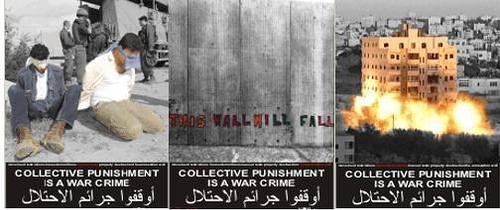23rd June 2013 | International Solidarity Movement, Nablus team | Nablus, Occupied Palestine
This Saturday, June 29 marks the 9th anniversary of the Israeli assassination of Naif Abu-Sharah, former resident of Nablus and leader of the al-Aqsa Martyrs’ Brigade until his death. But even though his death has long passed, Israeli authorities haven’t ceased collectively punishing the family he left behind.
During the early morning of Monday, June 23, the Israeli military surrounded the Hosh al-Hitan neighborhood of the Old City of Nablus and arrested Fadi Abu-Sharah, the 25-year-old son of Naif, in the same building in which they assassinated his father nine years ago. He is currently believed to be held at Huwwara Interrogation Center, south of Nablus.
This is not the first instance of punishment by the Israeli military against the Abu-Sharah family. Fadi has been arrested and imprisoned for extended periods in a number of previous instances, and his older brother, Fathi, was kept in an Israeli prison for nine years before being released a year ago. According to his family, Fathi was also given an order from Israeli authorities to appear at Huwwara Interrogation Center for questioning this week. About five years ago, Naif’s brother Ghassan was shot and killed by Israeli soldiers in his home. Neither Fathi, Fadi, nor Ghassan have ever been involved in military activities. The Abu-Sharah family hopes to hear news of their son within a week.
Collective punishment is a tactic long used by the Israeli authorities against the families and communities of those who have been active in resisting the Israeli occupation. Under the Fourth Geneva Convention, collective punishment is deemed a war crime. Further to this, under the Oslo accords Nablus city is Area A and is thus under full Palestinian civil and security control, meaning that the Israeli authorities have once again demonstrated their complete disregard for treaties that they have signed.

